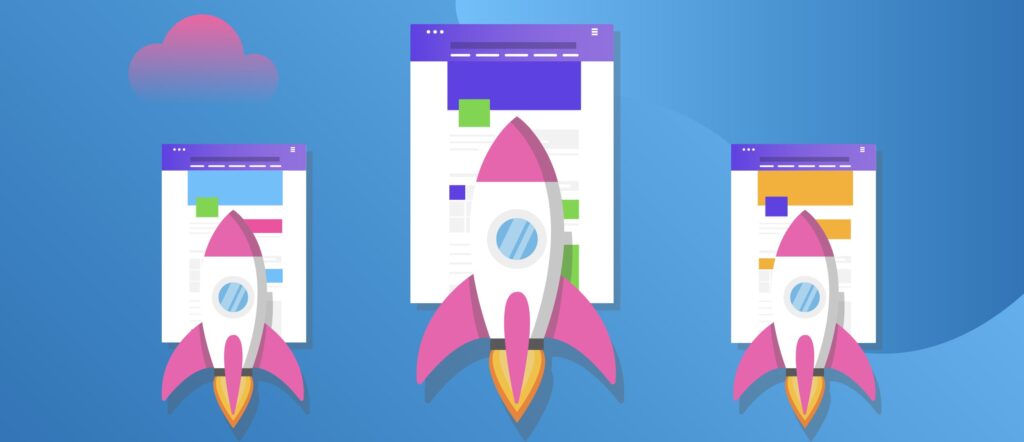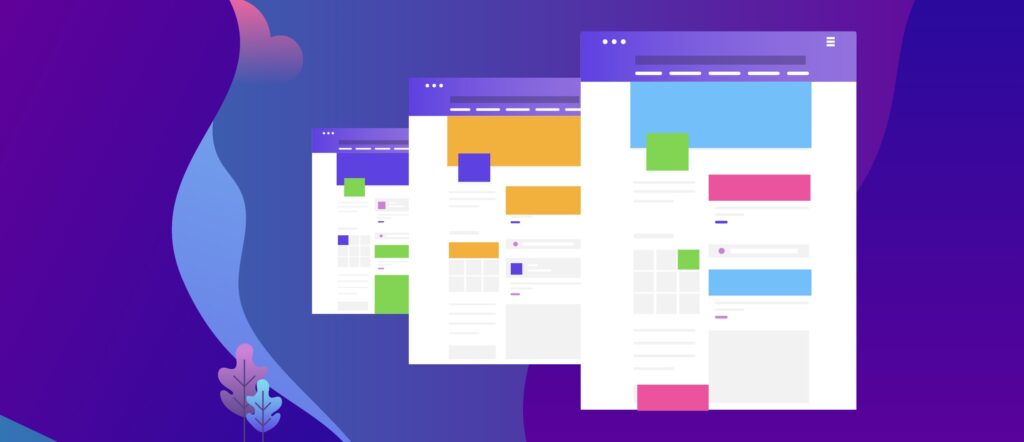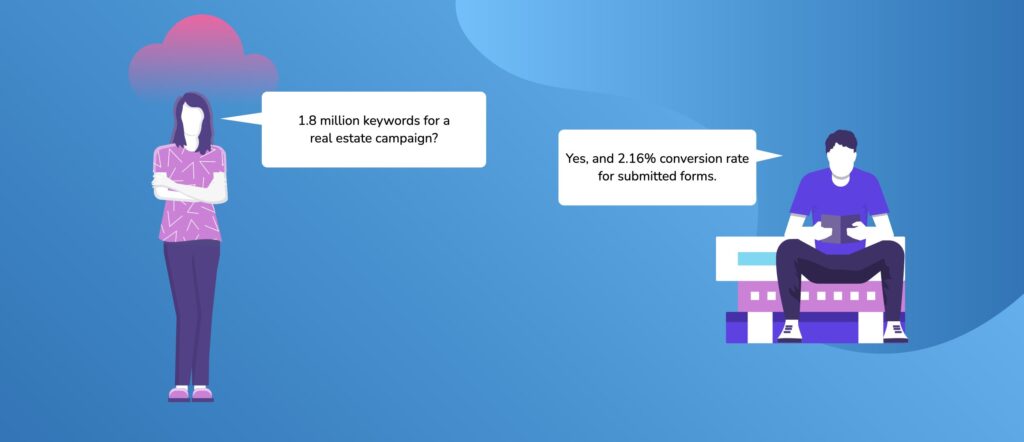
The Specifics of Landing Pages for Informational Search Queries
Essentially, search networks like Google or Bing distinguish between three types of user search intentions: Transactional, Informational, and Navigational searches. In the SEA (Search Engine Advertising) field, the aim is to answer these three basic areas as precisely as possible on both the Ads and Landing Page level. This poses significant challenges, especially for landing page design and the displayed content.
This article not only addresses the special requirements that an informational search query places on the appropriate landing pages but also shows how to manage the effort of covering each informational search query from an extremely broad spectrum of queries in a highly relevant way.
Informational Search Queries and Their Differentiation
By definition, the three main groups can be separated as follows:
Informational search queries, the focus of this article, center on research where users look for detailed information about a product or topic. The specific information required can vary greatly from one query to the next. In contrast, transactional search queries directly concern the purchase of a product or service and offer high conversion potential, making them initially the most attractive for advertisers. Navigational search queries, on the other hand, link a product or service with a geographic location, like when searching for the newest boutique in town.
Challenges of the Informational Landing Page
The desired information and, therefore, the content displayed varies not only from one search intention to the next but also significantly within the informational category. This leads to some challenges in SEA when trying to deliver the most relevant content for users.
In terms of the display ad, this is limited, literally speaking, as the title can be a maximum of 3×30 characters and the body text 2×90 characters. However, no such limitation exists on a landing page, which exponentially increases diversity. For instance, users might desire specific things like a ranking, a price comparison, or even a detailed explanation of a particularly complex subject area.
Specifics of the Informational Landing Page
Due to their diverse nature, when creating a landing page for informational search queries, it’s crucial to design the content to be thoroughly researched, well-structured, and easily understood. Users are seeking reliable information and expect the landing page to provide this in sufficient depth. Therefore, it’s advantageous to divide content into headings, subheadings, and lists. Another aspect is the visual design: A clear and appealing layout without distractions helps the user focus on the content. Visuals like pictures, diagrams, or videos can better illustrate complex information.
The credibility and trustworthiness of the information can be enhanced with the use of quotes, references, and testimonials. A sensible integration of internal links can provide the user with additional, in-depth information on the searched topic. However, caution is required here, which seamlessly leads us to the last critical point: Even though the focus is on providing information, the landing page should still have a clear call-to-action (CTA). This might be an invitation to sign up for a newsletter, download a guide, or fill in a contact form. When integrating internal links, a balanced approach is required to avoid detracting from the main objective, the CTA.
Impact on Campaign Performance
Logically, if the landing page is closely linked to the search query, campaign performance improves. Thus, if advertisers are able to do this, they will adjust their landing page content for each individual search query. With this approach, they achieve, for example, significantly longer dwell times and higher interaction rates compared to conventional, general campaigns.
On the other hand, as an advertiser’s keyword universe expands – perhaps due to a complex product that requires increased information from various perspectives – it becomes more challenging to deliver targeted content. General landing pages, intended for a wide keyword range, are no longer sufficient. Because this effort is avoided, advertisers tend to focus on specific keyword combinations.
Lyftyfy Enables Highly Customized Landing Pages for Every Keyword
Lyftyfy’s campaign architecture now makes it possible for the first time to automatically create tailor-made landing pages for any topic flood, thus eliminating the hurdle of effort. This SEA tool can generate dynamic content for any possible keyword combination, so Lyftyfy’s answer to which keyword combinations should be played is simple: All. Whether it’s about a hundred, a thousand, or up to 4 million pages (Google’s upper limit), the workload remains constant.
Although Lyftyfy creates all pages based on the same template to ensure consistency in corporate design, it still allows for the definition of specific content for each keyword and its combinations. This ensures a tailor-made and highly relevant landing page for every search query.
That’s why Lyftyfy is particularly suitable for informational campaigns in areas like mechanical engineering, logistics, or renewable energies – basically, anything that comes from the sector of products that require explanation or includes extensive inventories.
Conclusion on Informational Landing Pages
The highly diverse requirements for landing pages for informational search queries require a series of steps to ensure good performance. By traditional standards, these steps come with a considerable amount of effort, especially as the informational keyword world quickly reaches dizzying proportions. This effort can now be met with Lyftyfy’s campaign architecture at any scale.


